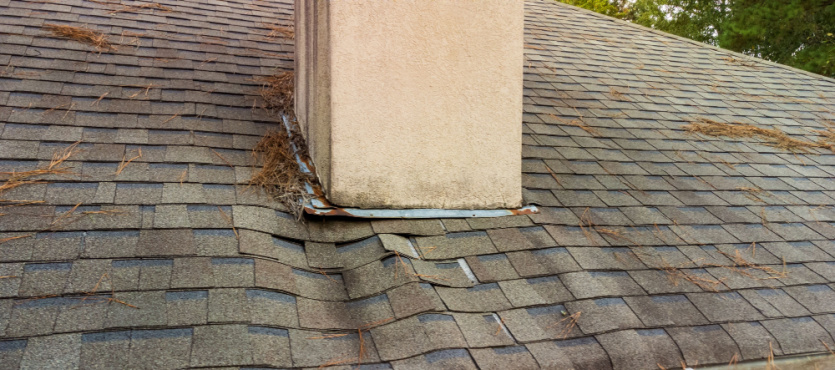Chimney leaks can lead to serious structural and safety issues in your home. If left unaddressed, the cost to repair extensive water damage can be very high. In a city like Toronto – where weather fluctuations are often taxing on our property exteriors – regular inspections and maintenance – along with proper preventive measures – are crucial to detecting and preventing water intrusion in your chimney.
If you suspect a chimney leak, it’s best to consult with a qualified chimney professional for a thorough assessment and necessary repairs. With that in mind, let us look at some of the dangers of chimney leaks and how to detect and prevent water intrusion:
Dangers of Chimney Leaks
- Structural Damage: Water can penetrate the chimney and deteriorate its masonry over time. This can weaken the chimney’s structure, leading to safety hazards.
- Interior Damage: Chimney leaks can damage the interior of your home, including ceilings, walls, and even your fireplace. Water can cause stains, peeling paint, and mold growth.
- Fire Hazard: If water infiltrates the flue liner or interacts with the fireplace, it can lead to a fire hazard. Cracked flue liners can allow heat and spark to escape into combustible areas of your home.
- Health Risks: Water intrusion can create an environment conducive to mold growth, which can lead to health problems, especially for individuals with allergies or respiratory issues.
Detecting Chimney Leaks
- Visual Inspection: Check the exterior of your chimney for signs of damage, such as cracked or crumbling masonry, missing mortar, or damaged chimney caps.
- Check the Attic: Inspect your attic for signs of water stains or dampness near the chimney. Water can seep through the roof and insulation.
- Interior Inspection: Look for signs of water damage inside your home near the fireplace or chimney, including stains, peeling paint, or mold growth.
- Chimney Cap Inspection: Ensure your chimney cap is in good condition and properly installed. A damaged or missing cap can allow water to enter the chimney.
- Flue Liner Inspection: If you suspect a leak in the flue liner, consider hiring a professional chimney inspector to use a video camera to inspect the interior of the chimney.
Preventing Chimney Leaks
Schedule regular chimney inspections and maintenance by a qualified chimney professional. They can identify and repair issues before they become major problems. If required, install or replace a chimney cap to prevent rain, snow, and debris from entering the chimney. Ensure it is properly fitted and in good condition.
Additionally, inspect and maintain the chimney flashing (the metal or other material that seals the gap between the chimney and the roof) to prevent water from seeping in. Consider applying a waterproofing sealant to the exterior masonry of the chimney. This can help repel water and extend the life of your chimney.
More importantly, address any cracks or damaged mortar promptly to prevent water from infiltrating the chimney structure. Ensure the chimney crown is properly constructed and in good condition to prevent water from entering the chimney. On the outside, keep your gutters and downspouts clean and in good repair to direct rainwater away from the chimney. If your flue liner is damaged, have it repaired or replaced by a professional to prevent leaks and fire hazards.
Best Masonry Contractor in Toronto
Remember, chimneys are a vital part of your home that needs year-round care and maintenance. If you suspect any signs of damage or leak, get in touch with an expert from Turnbull Masonry. While we have expertise in chimney repair work, we also offer brickwork, tuckpointing, historic restoration, and more. Call us today if you wish to learn more about our services.

